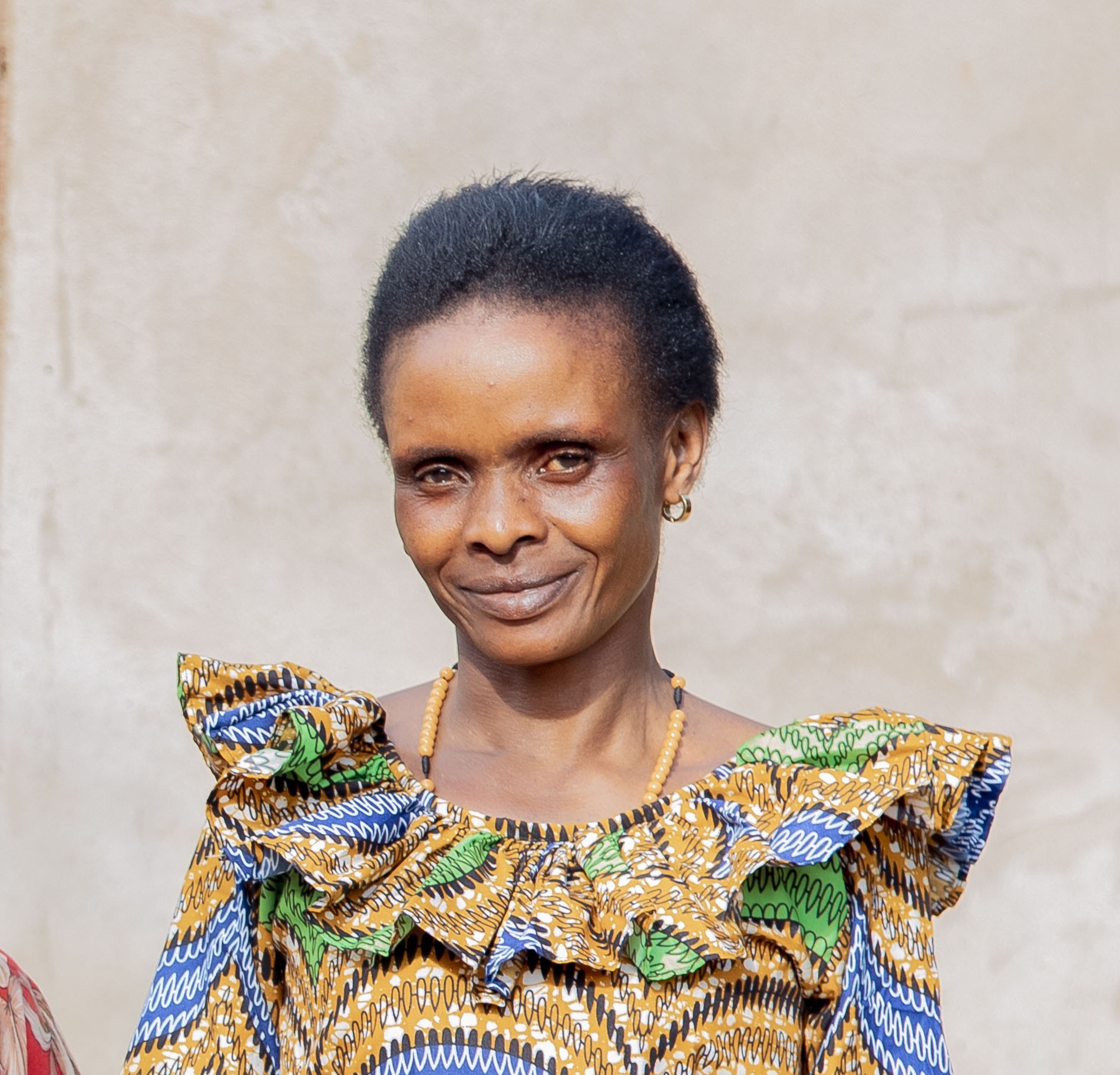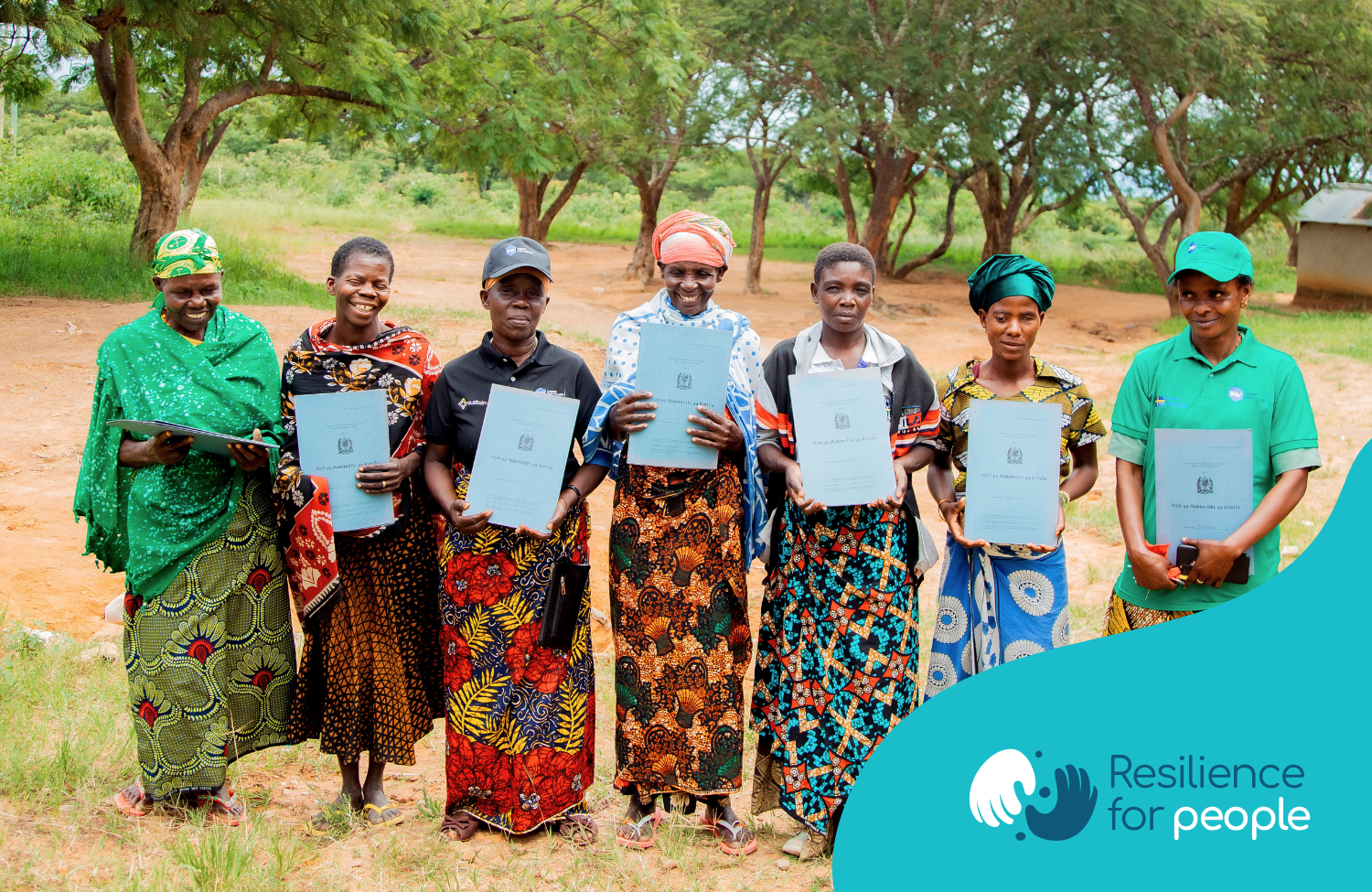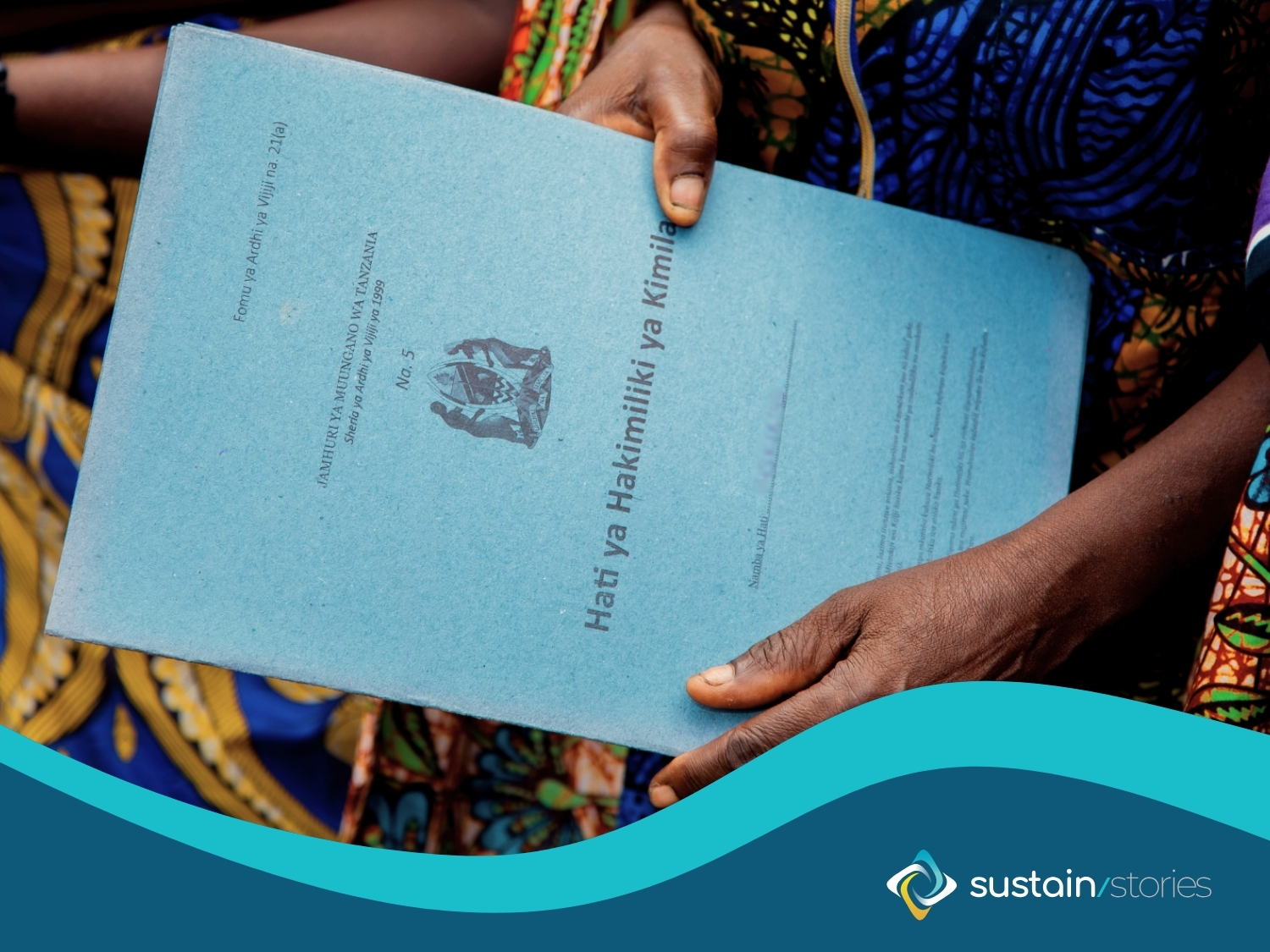Grace looks down, and a smile brightens her face, in her hands she is holding a blue paper file. Around her are 19 other women, all holding these same blue files which are the newly earned deeds to their land.
In the Kalambo district of Tanzania, where Grace lives, long-standing social norms have disadvantaged women and young people, preventing them from owning land and excluding them from leadership positions.
In Tanzania as a whole, while women make up nearly 90% of the agricultural workforce and produce 70% of the country’s food, only one in four holds secure land rights. Without this foundation, many are unable to invest in their futures or to influence how their communities grow.
For generations, women and youth had little say in how land was managed and lacked the security needed to plan for their futures. With fewer voices and perspectives represented, decision-making processes within their communities missed opportunities to shape new approaches or long-term strategies for managing surrounding lands and ecosystems. Over time, the lack of land ownership undermined the resilience and well-being of entire communities.

“At first, I was seen as a woman who had no right to own anything, and I could not speak of any wealth in my family” – Grace A Mwamba, a farmer in Kalambo
Planting seeds of change
In 2024, representatives from IUCN’s SUSTAIN initiative worked alongside district land officers to strengthen community awareness of land tenure systems and enhance understanding of their importance for building resilience. To initiate the land ownership process, and specifically to secure Certificates of Customary Rights of Occupancy (CCROs) for eligible community members, local leaders, together with SUSTAIN, introduced new perspectives in village meetings. From village to village, community members gathered to give their consent, raise concerns, and engage with local government authorities (LGAs). It was through these community dialogues that women and youth were able to move towards securing their land rights.
“I provide education to all citizens to understand the equality in law; that our laws recognise equal ownership for men and women. We also educate them to challenge practices that deny the rights of those same groups”. – Emanuel Joseph Lyimo, Land Officer
Changing attitudes takes time, as new ideas must take root. Emanuel explained that he and his colleagues prioritise marginalised groups to benefit from the project, focusing on those who are most often excluded from land rights, like women and youth, and who stand to benefit most from SUSTAIN’s on-the-ground work. By obtaining land tenure, the voices of women and youth are elevated as CCROs give them greater agency over their livelihoods. This security opens the door for new opportunities, from using land as collateral for business ownership, to taking a more active role in supporting the community to transition to new, more sustainable practices and improved natural resource management.

WOMEN WITH CCROs, GRACE IS FIRST FROM THE RIGHT
A farmer’s perspective
Grace and her husband step out of their home and onto her land. Now she feels her options are limitless.
“So far, I already own land and a farm. Now I want to own a house. I am very grateful for the community dialogues and the support we received.” – says Grace.
She stands a little lighter now, unburdened by local disputes and worries that previously weighed upon her. Before securing her land tenure rights, Grace and her husband would argue with their neighbour over border disputes, and she would worry about the future. Now she knows that whatever may happen, her daughter will be protected.
Grace’s newfound agency and stability are what build resilience. It enables women and youth to invest in their land and make choices, such as more sustainable practices, that benefit their land and livelihood in the long term.
Equity feeds growth
Emanuel has seen firsthand how access to CCROs has transformed landscapes. Shared resources, such as water reserves, were unknowingly being depleted before. But, through SUSTAIN’s work on land tenure and sustainable land use, a commitment to shared stewardship for the natural resources they depend on has emerged.
This commitment in turn helps to increase agricultural production: water resources are better utilised, while long-term crop and soil strategies are adopted, building economic prosperity in the community. The notion that children or close relatives will inherit this land is an incentive to invest in the land keeping it healthy and thriving.
As the sun sets in Kalambo, women and young people look out onto the horizon, empowered to shape the future for themselves and their communities. Equitable land ownership means sustainable practices can take root, and individuals are better equipped to nurture the resources under their care. Grace and Emanuel are reassured knowing that healthier landscapes will lead to more abundant harvests, create more economic opportunities, and ultimately, a resilient future for all.

This article is part of the SUSTAIN Stories campaign, which is celebrating the ongoing successes of SUSTAIN across its three pathways and the individuals and communities that make it possible. The SUSTAIN initiative is supported through the generous contributions of Norwegian Agency for Development Cooperation (NORAD) and The Swedish International Development Cooperation Agency (Sida).